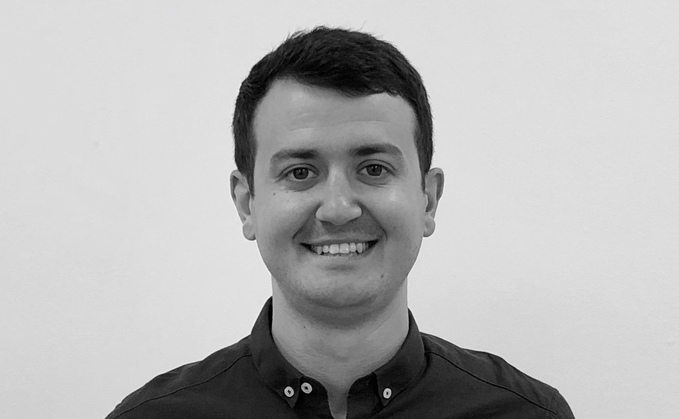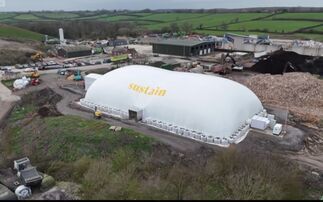
Industry Voice: Sunswap founder and CEO Michael Lowe shares his biggest challenges to date, his advice for budding entrepreneurs, and his company's vision for the future
Sunswap was founded in January 2020 by Michael Lowe, Nikolai Tauber and Andrew Sucis. It is a UK based clean-tech company on a mission to disrupt and decarbonise the global cold chain. Sunswap have built and are deploying a solar and battery powered transport refrigeration unit (TRU), the Endurance™.
Here, co-founder and CEO Lowe, offers his thoughts on his experiences as a clean tech entrepreneur and his company's plans for the future.
Why did you start Sunswap?
We started Sunswap to address the lack of genuinely viable alternatives to diesel transport refrigeration units (TRUs). We all rely on TRUs to keep our food and medicine cold as it travels around the country, yet most of us are unaware of the significant impact that loosely regulated diesel engines have on our environment.
Being climate conscious ourselves, we understood that providing logistics operators and supermarkets with an affordable and high-performance TRU, that was also zero-emission, was a clear way of having a positive impact on the environment. Thus, we set out to create the fully electric battery and solar powered Sunswap TRU, the Endurance.
What do the next two years look like for Sunswap?
The next two years at Sunswap are all about commercialisation. We have proven the technology and the commercial traction, so we are now focussed on getting as many of our TRUs out on the road, as soon as possible.
In 2023, we will finish manufacturing preparations and begin full production. Alongside these activities, we will be finalising the other core elements of our product offering, such as maintenance and telematics services.
2024 will see the scale up of our Endurance™ product manufacturing, as well as the initial commercialisation of other product lines that cater to the needs of the cold chain, (home delivery vans for example).
Where are you at with your technology today?
Our unit has been successfully deployed in real customer operations since March of this year, delivering 1000s of tonnes of produce up and down the country. The technology is ready to be deployed at a large scale and we are now building our manufacturing capabilities to do so.
What have been some recent successes for the business?
Completing successful customer trials with some of the largest logistics businesses in the world and subsequently securing orders - including with DFDS which we announced last week.
Developing an industry leading and first of a kind product in under two years is an incredibly difficult undertaking. Our engineering team pulled out all the stops to make this a reality.
What has been your biggest challenge to date?
The biggest challenge we have had is creating a best-in-class product on a very small budget. We do not have the same level of resources as our competitors, which means we must find innovative ways to solve problems.
How have you raised your funding so far?
We have raised three rounds in total, all through different methods. Our first round was through an accelerator called Sustainable Ventures. This investment took our idea from a pitch deck and spreadsheet in April 2020, to our first proof-of-concept unit in October 2020. We then raised our second round on Crowdcube, where we over-funded within one day of launching, eventually closing two days later at over 300 per cent of our initial target. Our latest round was co-led by Clean Growth Fund and Barclays, bringing more institutional investors on board to build the platform from which we can scale.
What has it been like working with the Clean Growth Fund?
Working with Clean Growth Fund has been hugely beneficial. We deliberately picked Clean Growth Fund as an investor as we knew they would bring so much more than just the financial backing. They provide us with a wealth of knowledge, support and networking opportunities. I am in regular communication with the team to discuss short term targets such as recruitment of key personnel, as well as the longer-term plans of future funding rounds and strategy of the business. I would recommend Clean Growth Fund to any businesses looking for investors that provide more than just cash.
Have you got any advice for any budding clean tech entrepreneurs?
Keep it simple. Start-ups are incredibly hard to keep running in the early days for countless reasons. Do not overcomplicate this by offering multiple non-essential products or services or by getting distracted by short-term gains that have no long-term benefit. In the early days, stay laser-focussed on the product that will make the business successful.
This article is sponsored by the Clean Growth Fund.







